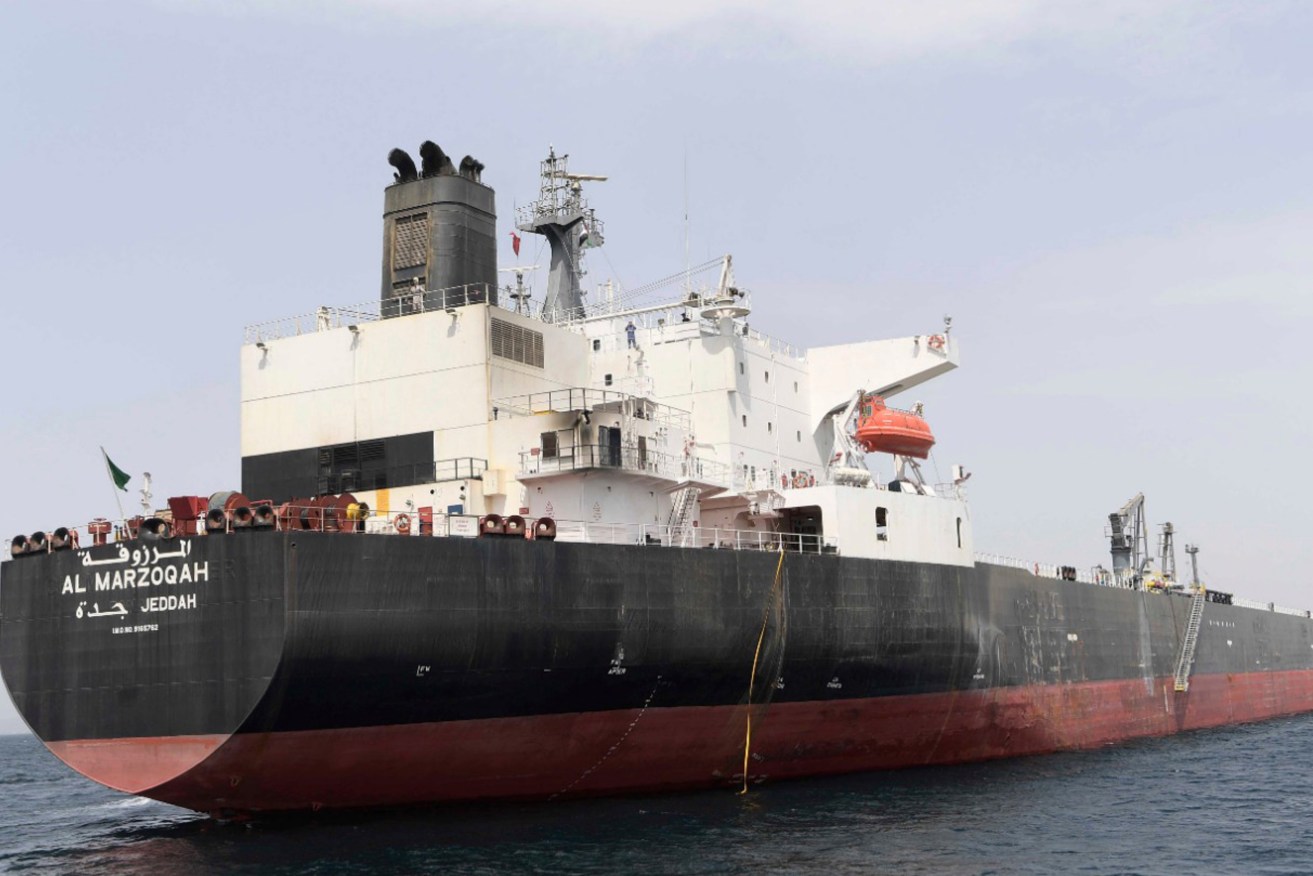US urges action “short of war” over oil tanker sabotage
The US ambassador to Saudi Arabia says Washington should take what he called “reasonable responses short of war” after it had determined who was behind attacks on oil tankers off the coast of the United Arab Emirates.

A Saudi-owned oil tanker, one of four sabotaged off the UAE. Photo: supplied
Iran was a prime suspect in the sabotage on Sunday although Washington had no conclusive proof, a US official familiar with American intelligence said on Monday.
Iran has denied involvement.
“We need to do a thorough investigation to understand what happened, why it happened, and then come up with reasonable responses short of war,” Ambassador John Abizaid told reporters in the Saudi capital Riyadh in remarks published on Tuesday.
“It’s not in (Iran’s) interest, it’s not in our interest, it’s not in Saudi Arabia’s interest to have a conflict.”
Four commercial vessels, including two Saudi oil tankers, were sabotaged on Sunday near Fujairah, one of the seven emirates of the UAE and a bunkering hub just outside the Strait of Hormuz. UAE authorities did not say who was behind the attack.
Distancing Tehran from the incident, Iran’s Foreign Ministry called it “worrisome and dreadful”.
Iran is embroiled in a war of words with the United States over sanctions and the US military presence in the region.
Washington has increased sanctions on Tehran, saying it wants to reduce Iranian oil exports to zero, after quitting the 2015 nuclear pact between Iran and global powers last year.
The US Maritime Administration said last week that Iran could target US commercial ships including oil tankers sailing through Middle East waterways.
Tehran has called the US military presence “a target” rather than a threat.
US Secretary of State Mike Pompeo shared information on what he called escalating threats from Iran during meetings with EU counterparts and the head of NATO in Brussels on Monday, the US special representative for Iran Brian Hook said.
Hook declined to say whether he believed Iran played a role in the attacks off Fujairah or if Pompeo blamed Iran. He said the UAE had sought US help in the investigation.
Newspapers in the UAE, which are heavily controlled by the government, ran editorials urging caution in responding to the attack, which risks undermining the Gulf Arab state’s image as a regional bastion of stability and security.
Saudi Arabia’s energy minister said on Monday that the attack aimed to undermine security of global crude supplies.
A fifth of global oil consumption passes through the Strait of Hormuz from Middle East crude producers to markets in Asia, Europe, North America and beyond. The narrow waterway separates Iran from the Arabian Peninsula.
US President Donald Trump wants to force Tehran to agree a broader arms control accord and has sent an aircraft carrier and B-52 bombers to the Gulf in a show of force against what US officials have said are threats to US troops in the region.
Iran’s Revolutionary Guards, designated a terrorist organisation by Washington, threatened last month to close the Hormuz chokepoint if Tehran was barred from using it.
-AAP
Want to comment?
Send us an email, making it clear which story you’re commenting on and including your full name (required for publication) and phone number (only for verification purposes). Please put “Reader views” in the subject.
We’ll publish the best comments in a regular “Reader Views” post. Your comments can be brief, or we can accept up to 350 words, or thereabouts.
InDaily has changed the way we receive comments. Go here for an explanation.




